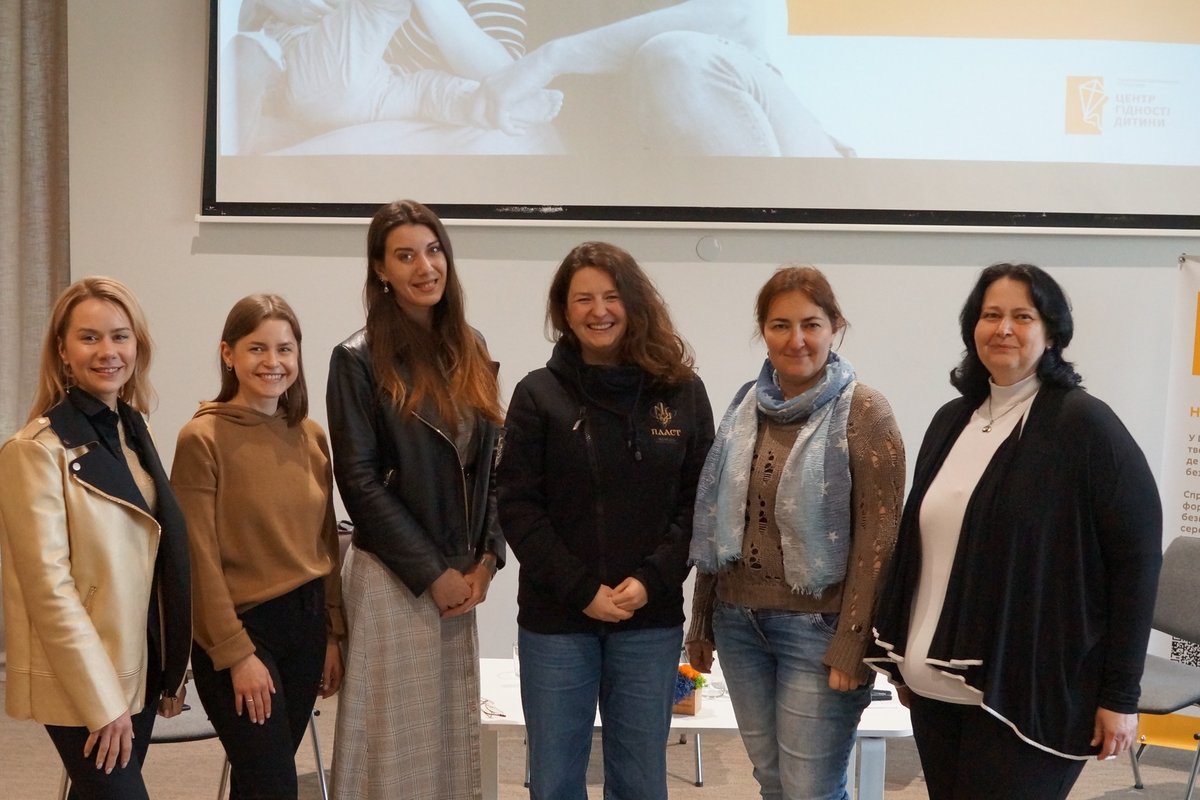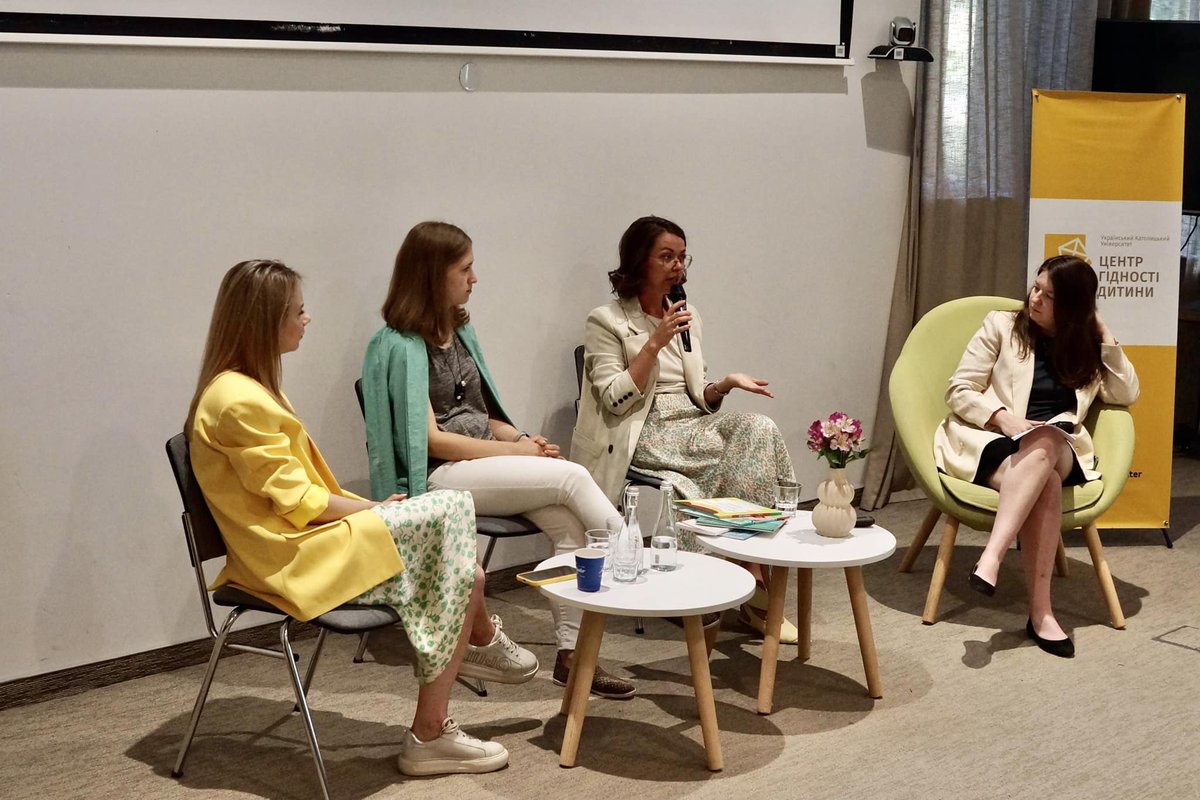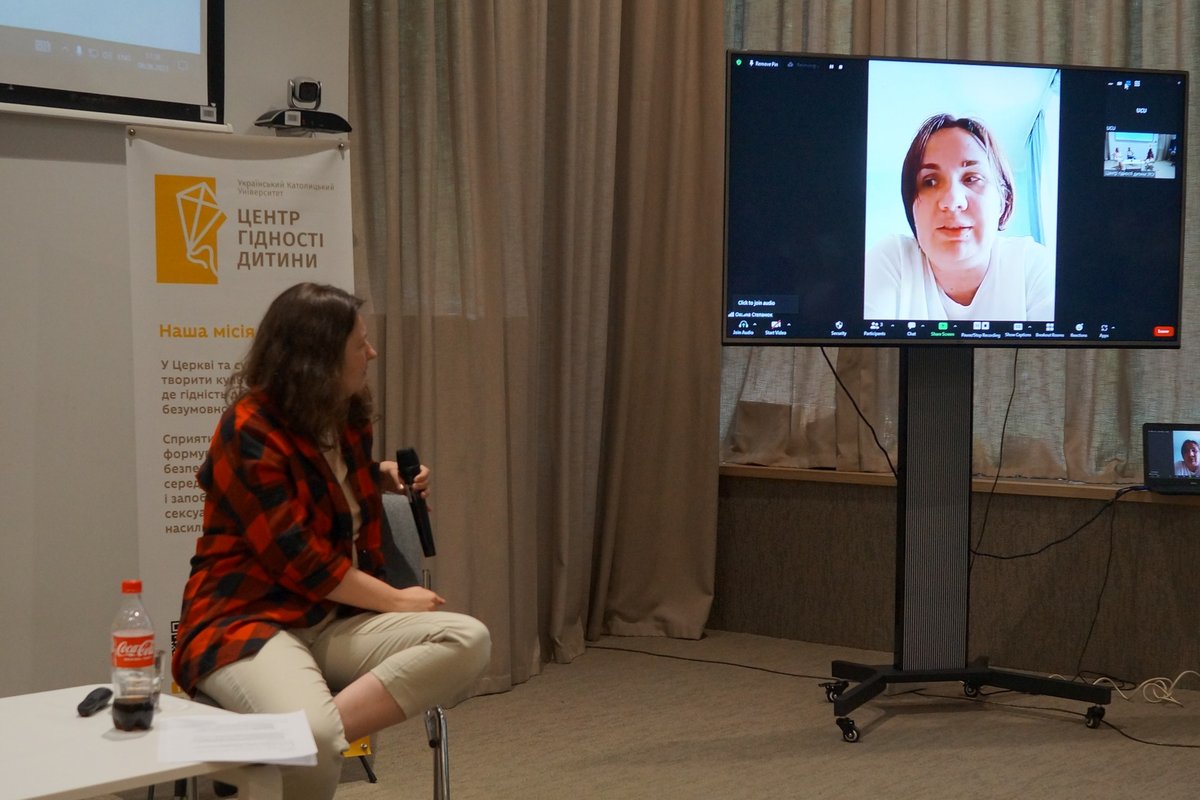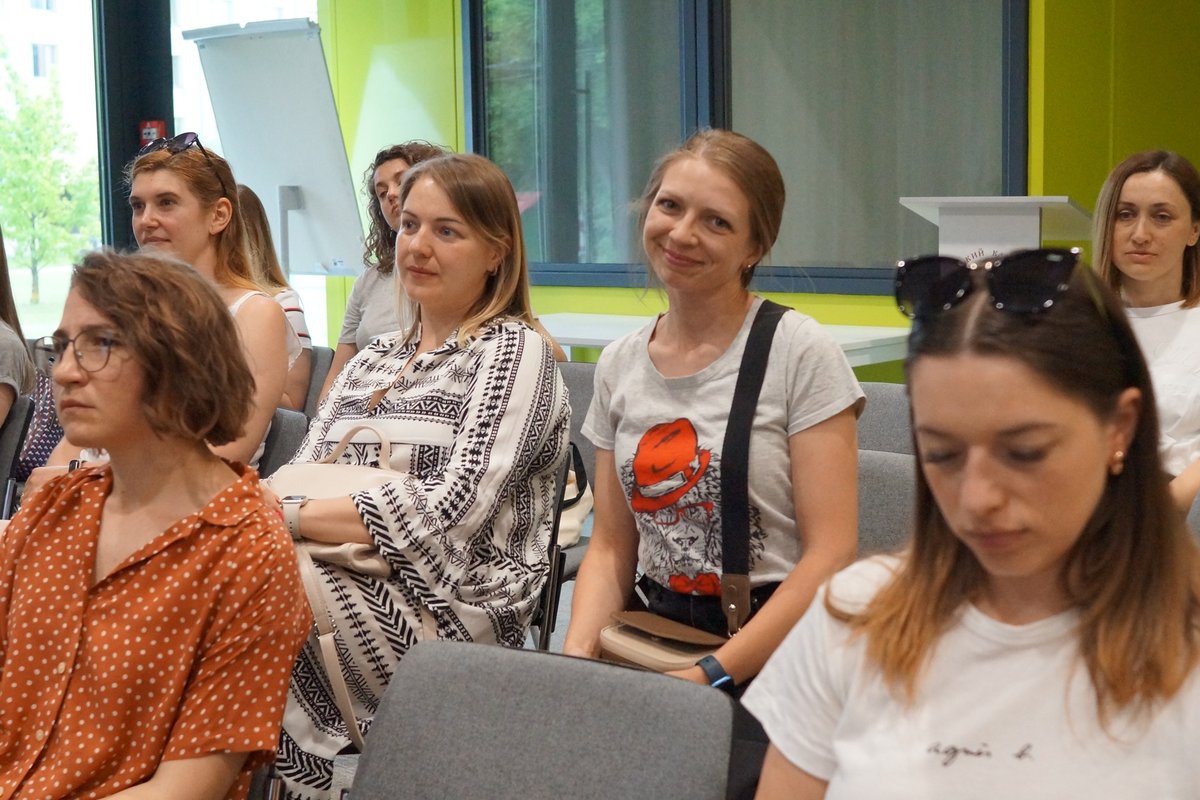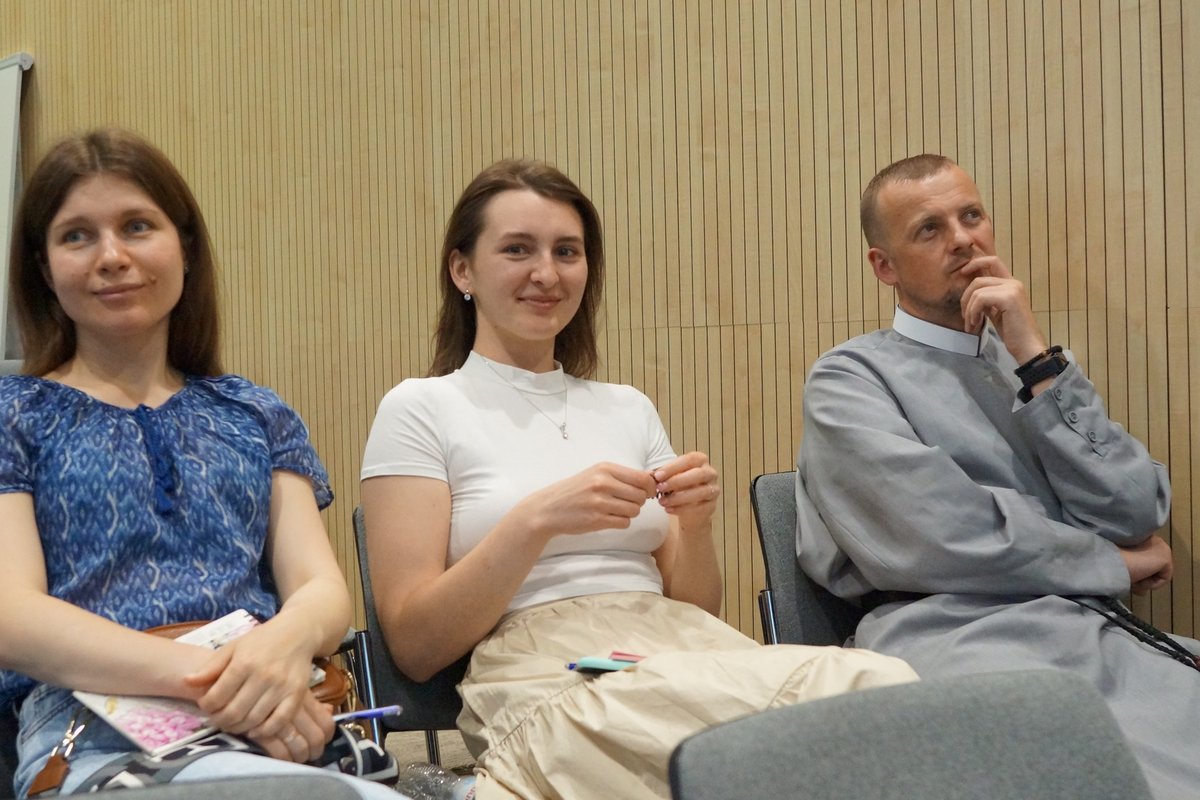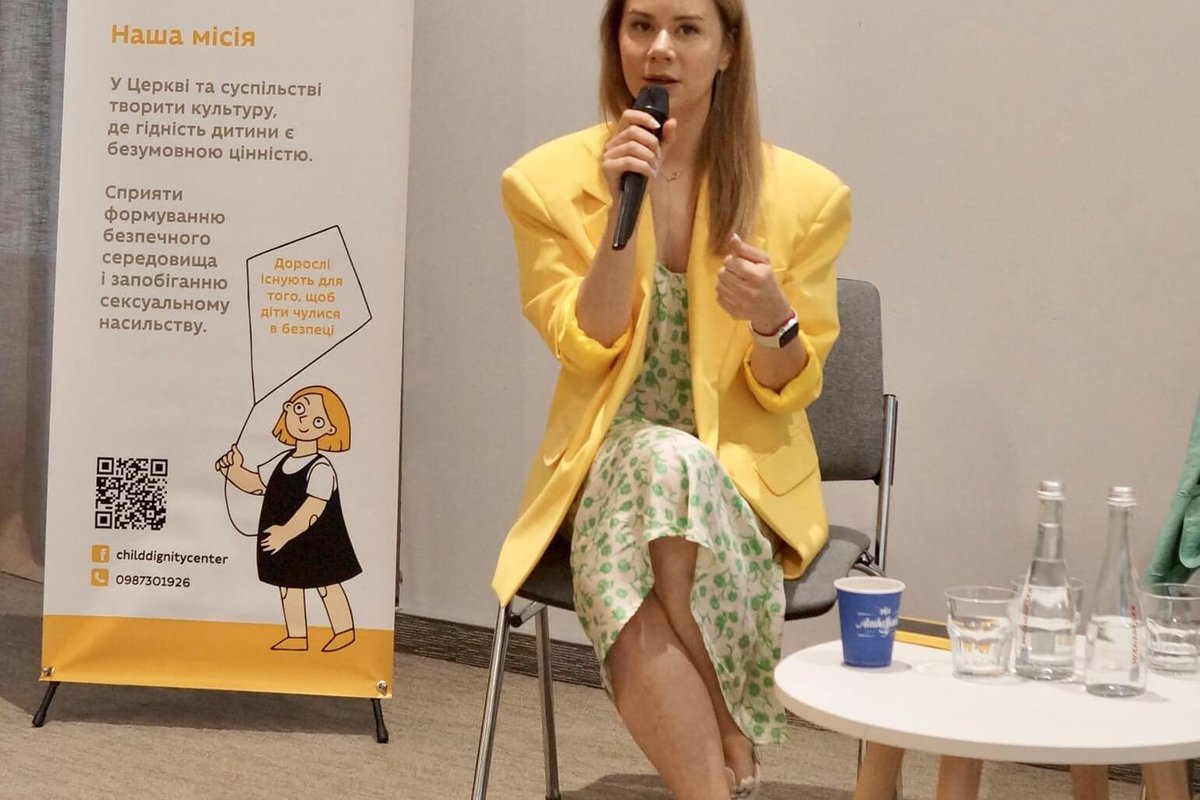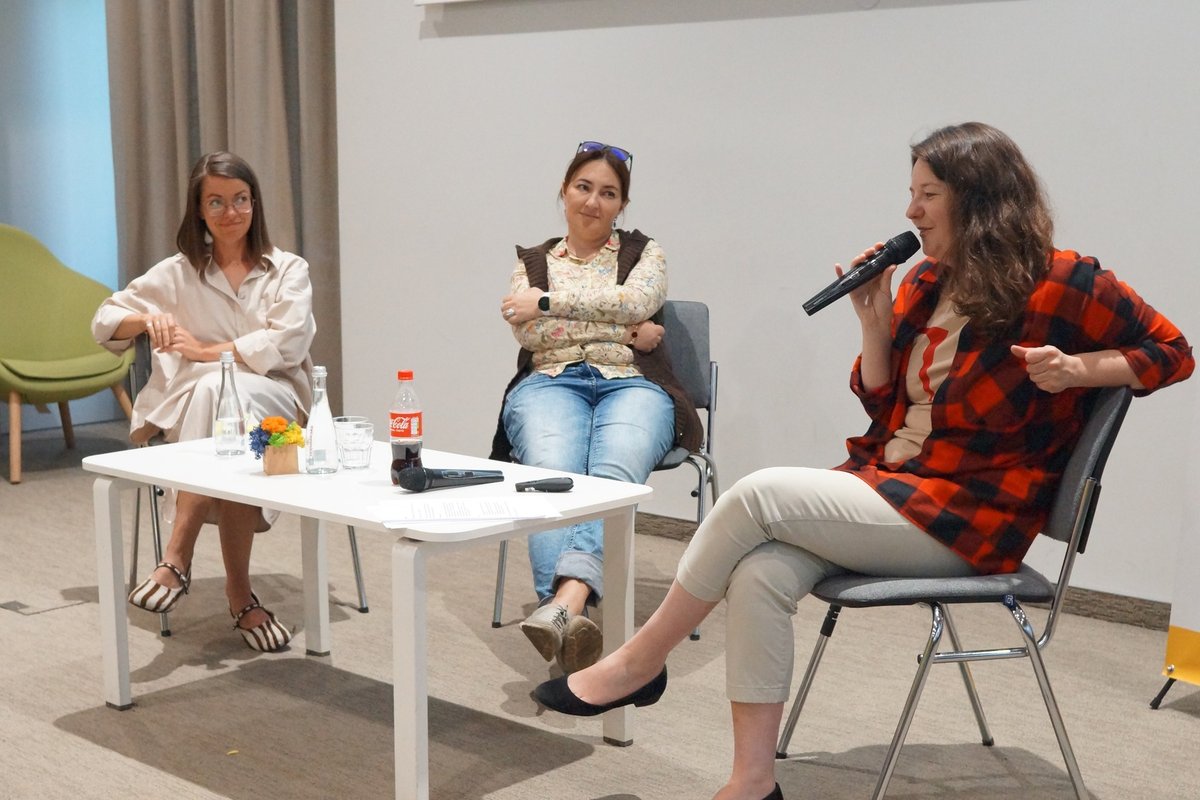Discussion series "Serious Talk: For Parents about Child Safety": important quotes from experts and valuable insights
"Serious Talk" is the first project of the UCU Center for the Dignity of the Child dedicated to the topic of child safety specifically for parents, created to prevent sexual abuse of children and create ecological relationships in the family. As part of the project, we held three incredible meetings on June 1, 6, and 13 at the Metropolitan Andrey Sheptytsky Center with experts in medicine, psychology, and pedagogy, attended by more than 140 parents and people working with children.
We share the most apt quotes from our speakers:
Khrystyna Shabat, moderator of the discussion, head of the UCU Center for Child Dignity, on society's demand for sexual education.
"Do you know why violence happens? Because adults do not know what to do to prevent it. And we did a study: these are unpleasant figures, they show the experience of adults who experienced sexual abuse in childhood. But the value of this research is that it is a great demand for sexual education and a socially acceptable model of the sexual model that could be. And our idea is to make a discussion for parents, to show what we have researched. And then to move this issue further up to the institutional level. Because we saw that the demand from society is huge, and the system is not ready."
Yuliana Maslak, a child psychiatrist and member of the Ukrainian Association of Cognitive Behavioral Psychotherapy, on who can be an abuser and why sex education is about safety.
"We think that sexual abuse can only happen in dysfunctional families, but this is not true. Because the people who commit sexual violence, their status and reputation in society are almost perfect. If we adults feel comfortable with another adult, it does not mean that this person cannot commit abuse against children. Children cannot realize all the long-term consequences: they are curious about the world, they believe adults much more than adults believe children. If you are trusting adults, which is incredibly difficult, your children will have more security and much more faith in themselves and that they will cope with various challenges. Even if there are cases of sexual abuse, the way parents react, the messages they send and what they do for their children afterwards, it will not change the experience, but they can support and help to be a support in the child's future life. Because what determines how children cope with traumatic events for themselves is the resilience of their parents."
Solomiya Boykovych, project manager at Teach for Ukraine, co-coordinator of the Mental Health and Psychosocial Support Task Team (MHPSS Task Team), on the importance of communication between parents and children and why parents shape a child's self-image and ability to set personal boundaries.
"Sexuality education, despite the fact that the word "sex" is in the root, is primarily about understanding all your body parts, the ability to say "no" and the child's personal boundaries. It may be difficult for us because no one taught us and, accordingly, in many families we are the pioneers and sometimes we are ashamed to say what is the difference between a boy and a girl, but according to research, we Ukrainians are aware of this and it puts us back on the right track. From the earliest age, we form a system of concepts and values, and accordingly, we form the foundation with which the child will go into adulthood, at least to school, where it will be more difficult to control the influence of other adults, other children from different families, and the information that the child receives from them. So, when we start from the earliest age of a child who is in a certain ecosystem that is easier to influence, we start teaching them personal boundaries."
Anastasia Shyroka, associate professor of psychology at UCU, on the basic skills that parents should teach their children for their safety.
"Children need to gain experience, otherwise they will not grow up, but we must teach them from an early age to think critically, filter information, and understand cause and effect. When a child can trust an adult, he or she will come and tell them about the information they have received from the outside, and for an adult, this is a good opportunity to tell the child reliable facts. That's why it's important to build a relationship with your child from an early age on the basis of trust, so that in the future, when the child continues to socialize on his or her own, you can learn directly from him or her about everything that happens in his or her life outside the home."
Yaryna Pikulytska, pediatrician, on the importance of a space where a child cannot ask questions to their parents but can talk to a doctor they have chosen and trust.
"In practice, it looks like parents want their children to have sexual education from doctors, but at the same time they are afraid to let go a little bit so that they can get this information. If we're talking about early adolescence, the questions that interest teenagers are 'what should I do with my changing body because I don't understand what to do with it'. It is very cool to look for answers to these questions with a doctor. I would like to see parents come with a request, and when they see that this "bridge of trust" is formed, then they are ready to go deeper, and when the child gets older, they can let him or her go to a doctor's consultation on responsible parenthood, contraception, etc."
We also share some valuable insights:
Sexuality education is a complex issue that should be implemented from an early age. Despite the word "sex" in the root, early childhood sexuality education is about personal boundaries and the ability to say "no" when something violates boundaries, contradicts desires, or threatens the child's safety.
Parents should be the main source of information, as they are primarily responsible for the safety and well-being of the child. From an early age, parents should accept and respect the child as a separate person and act as an example of healthy and ecological relationships based on understanding and mutual respect. It is then that the child will perceive this as the only true model of relationships and trust you.
- If a child starts coming to you with intimate questions, respond calmly. Your reaction is an example for the child of how to treat these topics. The conversation should be relaxed, and it is best to start with a question: "What do you know about this topic?". Don't be afraid not to know the answer - look for it together with your children, using sources that you think are reliable. Books can help.
- Puberty is "getting younger". Children may be confused, not understanding their own age-related changes. Help them by preparing them beforehand, explaining in simple terms why and how these changes are happening.
REMEMBER. Trust is the most important thing! Don't judge a child for being curious. If a child comes to you with a request, he or she trusts you. It doesn't matter if you are his/her mother/father, caregiver or teacher. Trust is the foundation of a child's safety.
